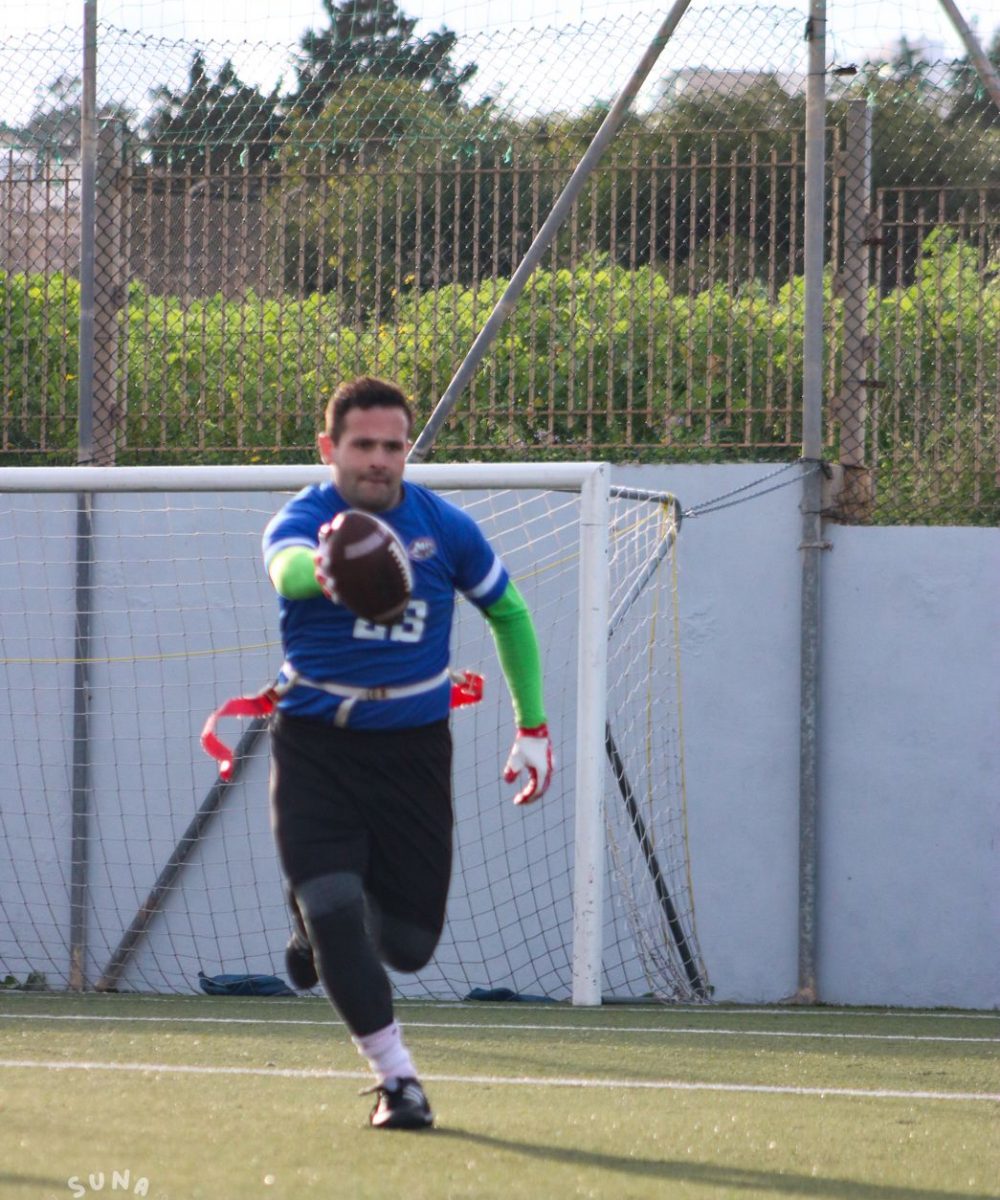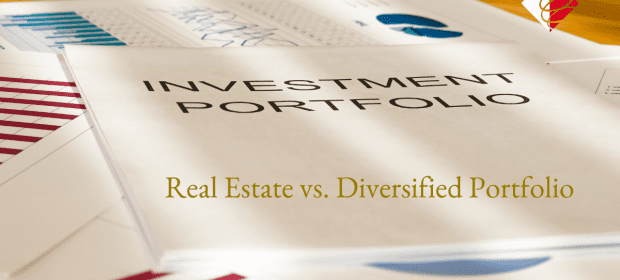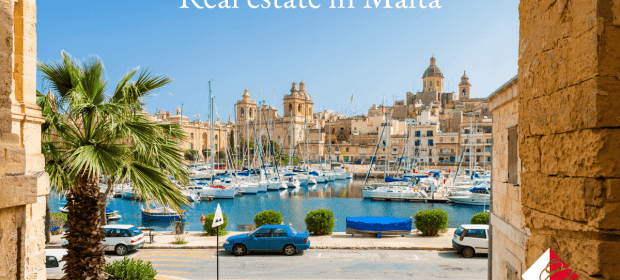The information within this article is for information purposes and is not to be construed as investment advice or recommendation. Please consult with your investment advisor before making any type of investment.
Are high fees affecting performance?
By Jozef Spiteri
This article is published on: 18th April 2024

The investment industry has always been highly competitive. Financial advisers globally are continually seeking solutions which are both attractive and able to fully meet their clients’ expectations – not always an easy task.
When selecting investment solutions for clients, it is essential to propose a strategy capable of delivering meaningful returns.
Controlling cost is also important.
When looking to invest with the help of an adviser, or on your own, you may be faced with different layers of fees, and it is critical that you understand each specific charge and the all-inclusive cost. You will for example need to consider adviser servicing fees, platform fees and fund fees. You should be fully aware of all costs before investing. Excessive expense will dilute investment performance, so care is needed to optimise prospects for growth, immediately and longer term.
At Spectrum we discuss fees with prospective clients in the first meeting as we feel this is the best way to start off a relationship. Transparency is key and this helps clients feel more comfortable and well-informed. The fees for our service are highly competitive as we have access to the most cost effective funds and products, with no ties to any particular product provider or fund manager. By ensuring the fees are at the lowest level possible we will be helping clients as they will not be unnecessarily penalised, resulting in better returns.
If you are unsure of whether you are currently invested in products paying high fees or are comparing options and do not know what to do, feel free to reach out to us. We would be glad to explain everything in simple and transparent terms. We do not charge for our initial meeting, and you are not obliged to become a client.
The Spectrum IFA Group Limited is licensed to provide investment services, under the Investment Services Act, by the Malta Financial Services Authority.
Spectrum’s Investment License in Malta
By Jozef Spiteri
This article is published on: 16th April 2024

The information within this article is for information purposes and is not to be construed as investment advice or recommendation. Please consult with your investment advisor before making any type of investment.
At Spectrum we always keep up with the constantly evolving regulatory dynamic which has become a dominant feature of the financial services industry over recent years (decades in fact). This is of vital importance to give our clients peace of mind and to allow us to continue delivering comprehensive and fully compliant investment solutions in Malta and across Europe.
The latest measure taken to bolster our range of services was obtaining a MiFID investment license from the Malta Financial Services Authority. This was a lengthy but worthwhile exercise to ensure that our clients, throughout the EU, continue to benefit from our extensive investment experience, from initial advice recommendations through to ongoing monitoring and support.
The use of this license has not only been limited to the countries where Spectrum is physically present (Spain, France, Italy, Luxembourg, Switzerland, Portugal and Malta) but also to other European jurisdictions, meaning Spectrum is now able to reach and service a much wider audience than before.
From lump sum investments to regular savings, pensions (QROPS and SIPPs), portfolio reviews and investment management guidance, we can engage with clients and identify the most appropriate solutions for their circumstances. In fact, many expats across the EU with QROPS pensions have been left without an adviser due to recent regulatory changes requiring that a MiFID-licensed adviser is appointed. Helping people manage their QROPS is a key part of our business, so we wanted to ensure that we could continue to assist these clients, both existing clients and those who be looking for an adviser. Therefore, being MiFID compliant is not only good news for us but will also give our clientele peace of mind that we will be here for them for the long haul.
If you would like to discuss your own situation and explore options for protecting your long-term financial security, feel free to reach out to us. All initial meetings are free of charge and do not hold any obligation to proceed.
The Spectrum IFA Group Limited is licensed to provide investment services, under the Investment Services Act, by the Malta Financial Services Authority.
Expatriate life in Malta
By Jozef Spiteri
This article is published on: 31st August 2023

When expats think about possible destinations for settling down and retiring, several factors come into play. Apart from Malta’s attractive Mediterranean climate, English-speaking locals and great connections to other European cities, the financial advantages associated with living here should also be considered.
When looking at Malta, apart from the obvious desirable features of the island, there are various visa programs available, offering a range of tax-efficient solutions specifically aimed at expats.
The following are just some of the options available:
Malta Retirement Programme (MRP)
This program is available to EU and non-EU nationals (including EEA and Swiss nationals) who are not employed and receiving a pension as regular income.
Beneficiaries of the MRP will be granted a special tax status with pension income remitted to Malta taxed at a flat rate of 15%, whilst other income arising in Malta will be taxed at a flat rate of 35%.
This can be very attractive for expat retirees who are paying significantly higher tax rates on their pension incomes in other countries.
Although they cannot be employed as such, those retirees on the MRP can hold non-executive roles on boards of companies based in Malta, and they can also engage in activities related to any institution, foundation or trust of a public nature (for example educational, philanthropic, or research and development work in Malta)
Professional advice should always be sought on suitability to personal circumstances.
Digital Nomad Visa
Many professionals are now working remotely – why not do so from a sunny island in the Mediterranean? This visa is valid for ‘third country’ individuals (non-EU, non-EEA, non-Swiss) who are either partners or employed with a company located outside the country. Consultants advising entities outside Malta are also eligible to apply.
The main requirement is that applicants must be earning a minimum of €2,700 per month.
Applicants who are accepted will also be allowed to bring over spouses and dependent children to live in Malta. These individuals will be able to take advantage of all that Malta has to offer, including hassle free travel to other Schengen countries.
A key advantage of this program is that no tax is payable within its first year. Again, professional advice is recommended.

Citizenship by Investment
This program is targeted at ultra-high net worth individuals who are willing to make a minimum contribution of €600,000 to the national development fund set up by the local government and who have been Maltese resident for 36 months. Another option is also available, requiring a contribution of €750,000 but with a lower residency condition of 12 months. Additionally, applicants must contribute a further €50,000 for each dependent included in their application.
€700,000 will also have to be invested into residential real estate or a rental contract of €16,000 per year will have to be established and maintained for five years. A donation of €10,000 will also have to be made to a registered philanthropic, cultural, sporting, scientific, animal welfare or artistic non-governmental approved organisation/society.
This will lead to citizenship and a Maltese passport after one to three years of residency, which by default also brings European citizenship, enabling these individuals to live, work and study anywhere in the EU.
Malta Permanent Resident Scheme
This program is a straightforward residency by investment program. The processing time for applications is four to six months from the submission of a correct and complete application form. The program is particularly valuable for prospects intending to make Malta their second home.
To be eligible for the MPRP, applicants should:
• be a third country national (non-EU, non-EEA, non-Swiss)
• not hail from sanctioned countries, as announced from time to time by the Community Malta Agency
• not benefit under other pertinent regulations and schemes
• have sufficient financial resources to maintain themselves and their dependants without recourse to the social assistance system of Malta
• show they have capital assets of not less than €500,000, out of which a minimum of €150,000 must be financial assets
• be fit-and-proper individuals and have a clean criminal record
• not pose any potential threat to national security, public policy, public health or public interest
Global Residency Program
The GRP is designed for non-EU, non-EEA or non-Swiss nationals who are not long-term Maltese residents. Individuals applying for the program can work in Malta if they satisfy the necessary conditions to obtain a work permit.
Successful applicants may also have household staff providing services in their qualifying property if all requisite conditions are met.
If you would like to know more about these programs feel free to contact our team in Malta. We can outline the various options and determine suitability to your circumstances. All initial meetings and discussions are free of charge and carry no obligation to proceed.
Spectrum sponsors the Malta Flag Football League
By Jozef Spiteri
This article is published on: 18th April 2023

Between December 2022 and March 2023, the inaugural season of the Malta Flag Football League was held which saw four teams battle it out for the title. One of the teams participating was our very own Tigné Tigers. The other teams taking part were the Balluta Ballers, Simpl Lords and Enteractive Kings.
During the regular season the Tigers were dominant. Their versatile plays on offense and no-nonsense defence led them to win five out of their 6 matches, moving on into the playoffs comfortably holding the number 1 seed.
In the semi-finals the Tigers faced a resilient Simpl Lords team. The game was neck and neck in the first half but in the second half some good defence saw the Tigers maintain a slight cushion over their opponents. The match ultimately had to end a few seconds early due to an injury being sustained by one of the Simpl Lord players, leaving them with insufficient players to play on. The other semi-final saw Balluta Ballers progress after a forfeit from Enteractive Kings.
The final between the Tigers and Ballers was very tight, but the Tigers great defence seemed to be the difference between the two teams. This meant that after a great encounter, the Tigné Tigers were crowned as the first MFFL champions.
Well done to all those involved, and a special mention to our very own Jozef Spiteri who was the man who organized most of the league.



Income in retirement
By Jozef Spiteri
This article is published on: 21st March 2023

Following the previous article where we saw how investing can be used to increase levels of savings in retirement, we will now focus on how invested funds can be of added benefit when it comes to drawing an income in retirement.
We shall be making use of the same three scenarios we saw in the last article, where John had to choose between keeping all savings in cash, investing in a balanced risk portfolio or investing in a more adventurous portfolio.
In the first scenario John was left with cash reserves of €911,186 at retirement.
In retirement John aims to maintain his lifestyle whilst also taking two big trips annually with his partner. An estimated drawdown of €50,000 per year should allow this. In this case, cash reserves would last John 18 years. Considering that people nowadays are living longer, John will have some tough decisions to make. This may involve reducing the withdrawals made each year in order to stretch the funds as much as possible. Therefore, John will find it very difficult to maintain the retirement he wanted.
Looking at scenario 2, John will have an investment pot of €1,375,757 at retirement growing at 4% per year. If he were to withdraw €50,000 a year, this would represent a 3.6% annual withdrawal. This would mean that he would be taking out most of the average growth being achieved annually, which will more or less have his portfolio increasing by 0.4% per year net of drawdown. This will mean that John will not only be able to lead the life he wishes but also have a valuable cushion to protect against unexpected expenses which could arise in future.
The potential cushion with scenario 3 could be even greater with a savings pot of € 1,845,763 at retirement and an investment growing at an average 6% per year. John will be making an annual withdrawal of 2.7% of his portfolio leaving a net growth of 3.3% per year after drawdown. It’s often the case however that a more ‘balanced’ risk approach is taken in retirement.
This example illustrates the power of investment not only before, but during, retirement – compound returns within a properly planned investment strategy will often contribute towards achieving a secure and comfortable retirement.
The above are simplified examples and for illustrative purposes only. For a more detailed outline of how we implement successful investment strategies, please contact us to arrange an introductory discussion.
Cash flow planning
By Jozef Spiteri
This article is published on: 13th March 2023

Cash flow planning is an exercise which could benefit individuals of any age, be it people just starting out their independent lives or others approaching retirement. Understanding how much money you have and the best way for you to use it is vital, and many seem to underestimate the power of good, constructive planning.
It is important to consider how surplus money can be used more efficiently. Surplus money refers to reserves of cash over and above any emergency fund held in a bank account. How can one use these resources more efficiently? What difference will it make?
Keeping excess funds in cash will result in the value of that money being eroded, as no meaningful growth will be achieved. Therefore, one must find a way to grow this money and protect it against inflation by generating positive real returns.
For many, investing might seem unnecessary, complicated, or risky. Such a mentality is usually the result of misconceptions. The reality is that the current environment is not what our parents or grandparents experienced when growing up; what worked 20 or 30 years ago might not work as well today.
We will now compare three scenarios for the same person. These examples will indicate the level of savings this individual would have at retirement if keeping all savings in cash, investing in a balanced risk portfolio or investing in a more adventurous portfolio.

In this example we have John, an average working man who went to university until age 25 and then worked until age 68. John started off with an average wage at the beginning of his career, with limited income and unable to buy a property or secure a sizeable mortgage. In his late 20’s he then managed to take out a mortgage for his own place. He only started to earn a decent level of income in his early 30’s, and this is the point at which he had to choose between investing this income or saving in cash. Therefore, John had the ability to save and invest for around 35 years prior to retirement. Let us now see what the differences are if he chose to invest or not.
If John left all surplus income in cash, he would reach retirement with a savings pot of €911,186. This means that he will have to plan his cost of living based this amount, together with the lowly public pension he will earn, until he passes away. If John were to spend around €40,000 a year (in today’s money) from his savings in retirement, the money would last him around 22 years. This is assuming that John is only maintaining his lifestyle and not accounting for eventual medical costs which could arise, or other unforeseen expenses. Therefore, what might seem to be a substantial amount of cash does not really give John a lot of ‘wiggle room’.
Let us now consider a balanced risk portfolio for John, starting contributions at age 32. If John were to invest around €20,000 a year until retirement, growing at an average rate of 4% per year, he would accumulate a savings pot of €1,375,757. This would give John an additional €464,571 compared to the scenario where he saved in cash, with the added advantage that the money invested will offer further growth potential during retirement, allowing him to maintain a buffer, further extending the longevity of his funds.
Alternatively, if John were to consider a more adventurous portfolio, with the same level of contributions and years of investment, his eventual savings pot would achieve a value of €1,845,763 – nearly a million euros more than if he chose not to invest at all.
This example highlights the power of compounding returns, and the importance of good financial planning. This is a service we offer all clients and together we can identify the best way to meet your goals. If you would like to discuss your financial future, feel free to get in touch.
The above are simplified examples and for illustrative purposes only. For a more detailed outline of how we implement successful investment strategies, please contact us to arrange an introductory discussion.
Bonds – still a low-risk investment?
By Jozef Spiteri
This article is published on: 5th May 2022

Are bonds going out of fashion?
Bonds, which are fixed income instruments, are probably one of the most popular asset classes along with equities, and have been used by organisations to raise funds for many years. Because these instruments pay regular interest (coupons), they are attractive to investors, but are bond investments really as good as people think they are?
Let’s begin by defining what bonds actually are. A bond is a debt instrument, meaning that the organisation that issues them, be it a government or a private corporation, is obtaining a loan from the general public. The reason for opting to get a loan from the public rather than a traditional bank is simple; they will pay less interest making it a much cheaper method to finance a project. An example of a bond would be one maturing in 10 years’ time, paying an annual interest rate (coupon) of 2.5%. This simply means that if an investor had to purchase €1,000 worth of this bond issue, they will receive €25 per year for 10 years and they will get the initial amount (principal) of €1,000 back at maturity. The fact that money is being received every year tends to deceive investors. The truth is, for a coupon as low as 2.5% they will just be moving in line with inflation, which has been around 2-3% in recent years and has started to creep up in recent months. This means that with such an investment they are not adding value to their wealth and actually risk losing value.

After reading this you might be wondering what investments could help you beat inflation.
Over the past 10 years the asset classes that have performed the best have been US equities and REITs (Real Estate Investment Trusts) (www.blackrock.com/corporate/insights/blackrock-investment-institute/interactive-charts/return-map).
Debt, or bonds, has been one of the weakest performers across the board, and this has contributed to the fall in popularity of this asset class. The best approach would be to invest in a diversified basket of assets with well-established fund managers, with a track record of good returns. This will not only reduce the risk of bad performance and value destruction thanks to inflation, but will also give you exposure to higher returns.
If you are interested in discussing this matter further, or any other topic, feel free to reach out to one of our advisers. We will be more than happy to sit down with you and go over all the questions you might have.
We do not charge any fees for our initial consultations and there is no obligation to proceed further.
Real Estate vs. Diversified Portfolio
By Jozef Spiteri
This article is published on: 26th April 2022

Owning property is important to many people and is probably one of the first goals of young adults once they enter the working world. People in their twenties and thirties usually make their first real estate purchase for residential reasons, sometimes renting a room out to generate some extra income. When people enter their mid to late forties, especially in Malta, they tend to start considering purchasing more property, this time as rental investments. This is what I will be looking at more closely in this article.
In the past, the main aim of people entering the latter end of their working lives was to accumulate as much property as possible to be able to live comfortably off the rental income generated. That doesn’t sound like the worst idea in the world, especially if you have the means for it. The more property one has, the more income is coming in and the risk of being caught out with periods of no rental income decreases. A question no one seems to ask though is, “What return am I really making?”

This is a question I have been asked quite a few times, and I will make use of a numerical example. Imagine someone has €1,000,000 laying around to invest in property. This could potentially be enough to purchase 4 apartments valued at €250,000. Assuming this investor has these apartments rented out all year round on a long-let basis earning him €1,000 per month each (€4,000 total), the annual return made would be 4.8%. This is assuming there are no months where an apartment is vacant and not taking into consideration maintenance costs and taxation; which means the net return can be substantially lower.
Is there an alternative though? One solution to the real estate approach is building up a portfolio invested in a diversified selection of assets. Such portfolios include property too, but they also allow exposure to many other asset classes which will help increase returns. The advantages of such an approach do not stop at the increased returns. Clients will not have to deal with the headache of maintaining their investment as they will have investment managers doing that for them. Another plus is that investment portfolios are more liquid than real estate and investors can take money when needed, leaving the rest of their funds in the portfolio to continue growing for them.
If you are interested in having a discussion and need some guidance on what your next steps should be, feel free to reach out to us. All our first consultations carry no charge and there is no obligation to proceed further.
Real estate in Malta
By Jozef Spiteri
This article is published on: 2nd March 2022

One asset class which the Maltese are very fond of is real estate. This love has been passed down from previous generations, which saw the value of their properties rise and rise as the years went by. Even though real estate remains a solid asset, individuals who are looking to start their investment journey must understand that the market today is far removed from where it was 50 years ago. Let me explain.
In the mid to late 20th century, Malta was still very underdeveloped, slowly recouping from the devastation suffered in the second world war. As the baby boomers grew up and became young adults, and expats, particularly from southern Italy, made their way to the Maltese islands, demand for property started to grow. Many Maltese realised that an opportunity was on the horizon and several local entrepreneurs began to buy land and develop it. The initial outlay was relatively affordable, even for those days, with sales or rents practically guaranteed for the newly erected properties. Realising how lucrative this market was, more inhabitants started investing in property and for most individuals this became the perfect investment which would see them, at the very least, retire comfortably.
Fast forward to 2022 and property in Malta has become very expensive and relatively scarce. Prices continued to soar, partly due to the constant increase in demand, but also the lack of regulation which encouraged property sales at high prices, contributing to the inflated valuations we see today.
What does this mean for young adults who are looking to buy their first piece of land/property? Coupled with the high interest rates being charged by Maltese banks for mortgages, and below average salaries earned in Malta, this market has become very difficult to access, and those who do manage to strike a deal will still see themselves paying very expensive loans for many years, hindering further investment for quite some time.

Is there an alternative investment solution?
This is where a suitably experienced professional adviser can help, by thoroughly analysing your current financial situation together with short and longer term intentions, and then proposing appropriate, flexible planning solutions. At The Spectrum IFA Group, we provide our clients with easy access to a wide range of investment options matched to individual circumstances.
If you are interested in further understanding what we do, feel free to contact us. Initial consultations are free of charge and there is no obligation to proceed with our suggestions.
The importance of retirement planning
By Jozef Spiteri
This article is published on: 1st March 2022

We are living in a world characterised by innovation in all fields, especially in medicine and healthcare. This vast improvement, the fruit of research and technological development which is ongoing, has contributed to a substantial increase in our life expectancy.
Since people are living longer, it is vital that the funds they build up throughout their working lives will be sufficient for them to live comfortably long into retirement.
Life expectancy for women currently stands between 80 and 83 years, whilst that for men is between 75 and 78 years, far greater than even 10 to 20 years ago, and this will continue to increase as developments in the medical sector continue. With the current retirement age standing at 65, this means that individuals must have enough savings to last for 10 to 15 years, and most likely these funds have to last even longer.
Another point to take into consideration is the lifestyle one wishes to lead when retiring and the other costs which come along with old age, such as medical and care costs. Taking these points into consideration, you may be wondering about the the best course of action to create enough wealth to cover your needs and desires in retirement.
The best way to start is to ensure that you do not keep funds in a bank account . Whilst having a cash reserve set aside is important for any emergencies which could arise, having excess funds sitting idle is a killer to the real value of that money (as in our previous article about protecting your wealth). As inflation continues to increase, the value of money earning low interest rates in savings accounts is declining, and this is why something should be done to counteract this issue.

One possible solution is investing these funds in a diversified portfolio of assets which, in the long run, will produce a return higher than inflation rates (read our article on investment performance here). This will not only protect your hard-earned cash, but it will add value to it, with the aim of providing financial security later in life and to allow, if you’re so inclined, numerous holidays around the world (or to other planets, who knows) after you retire.
Our advisers will be able to give you personalised, informed advice, to find the best possible solution for your circumstances. The service will be ongoing and adjustments can be made as your situation changes. This is something we are proud of, making sure that we are there for all our clients throughout their investment journey. All initial consultations are free of charge and carry no obligation to proceed.

